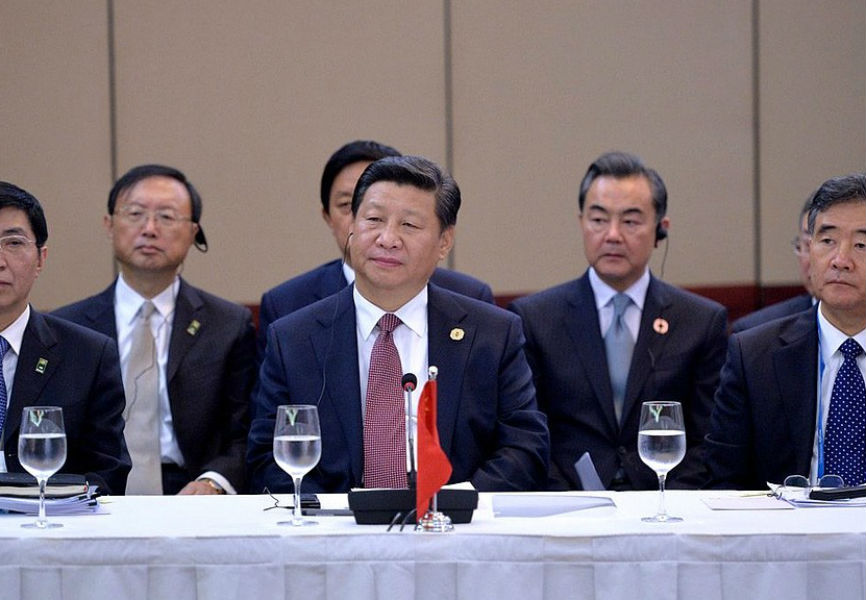China Has goals of its own, will they align with the Trump Administration?
Below is the transcript of the conversation between Robert Siegel and
Evan Medeiros, former adviser to President Obama, and now Asia region Managing Director at Eurasia group.
This piece was originally published on NPR.
ROBERT SIEGEL, HOST:
Reuters cites a knowledgeable U.S. official as saying that American and Chinese representatives will meet later this month to talk about bilateral economic issues. That would be against the backdrop of U.S. demands that China do more to get North Korea to rein in its weapons program. One idea is to threaten China with economic sanctions if Beijing doesn't push harder against its neighbor. Well, how might all this look to the Chinese? How do they see their interests on the Korean Peninsula?
Well, joining us is Evan Medeiros. He advised President Obama on China for nearly six years. He's now with the Eurasia Group. Welcome to the program.
EVAN MEDEIROS: Good afternoon, Robert.
SIEGEL: We Americans look at North Korea. We see a small, poor, nuclear-armed country. It's hostile to our allies, the South Koreans, and menacing to Japan, too. What do the Chinese see when they look at North Korea?
MEDEIROS: China principally has two interests with North Korea. The first is North Korea is a buffer state between China and South Korea because South Korea is not only aligned with the United States, but there are nearly 30,000 U.S. troops in South Korea. And the second interest is the possibility of a chaotic reunification process if the North and South ever came together - that that could lead to a huge humanitarian crisis.
SIEGEL: So it's very much in Beijing's interest to see that there is a North Korea and that it's not crumbling and it's not succumbing to South Korea.
MEDEIROS: Well, there are big debates in China, and those debates have intensified in recent years as North Korea has accelerated its nuclear and missile program. And the debates have become much more public. And I think the Chinese government is trying to sort out exactly how and whether it takes a more coercive approach to North Korea.
SIEGEL: When talking about sanctions on North Korea, the U.S. obviously can't be as influential as China. China supplies most of North Korea's fuel and food. Can you imagine the Trump administration convincing China to put the pressure on the North Koreans?
MEDEIROS: China has already put some pressure. The question is, will China put regime-threatening pressure on North Korea? That's what the U.S. wants, and that's what the U.S. believes is necessary to get North Korea to come back to the bargaining table and recommit to denuclearization. I don't think the Chinese are willing to engage or think about regime-threatening pressure, and that's a structural problem at the heart of the U.S.-China relationship.
SIEGEL: It is vital to the Chinese, as you've described it, for North Korea to remain, to exist. Is it vital to the U.S. that North Korea exists consequently, and do the Chinese believe Washington when the U.S. says, we don't intend to change the regime in Pyongyang?
MEDEIROS: One of the fundamental problems at the heart of U.S. policy is the U.S. focus on regime-threatening sanctions touches that Chinese insecurity that the U.S. actually wants to bring down the regime and reunify the Korean peninsula on the terms of South Korea, the U.S. ally. And so that concern, that insecurity is one that will always constrain the level of Chinese cooperation.
SIEGEL: Again, putting the United States in a box there, obliging Washington to say, we have no problem with the survival of this odious, unpredictable and perhaps irrational regime.
MEDEIROS: Correct. So the U.S. policy right now has sought to signal that it's focused on denuclearization and not regime change. And the secretary of state has said that. But there are big doubts in Beijing about whether or not those assurances are credible, which is one of the reasons why the Trump administration's North Korea policy has been ineffective to date.
SIEGEL: Evan Medeiros, thanks so much for talking with us about it.
MEDEIROS: Thank you very much, Robert.
SIEGEL: Evan Medeiros served as the senior director for Asian affairs on the National Security Council during the Obama administration. He is now with the Eurasia Group.


